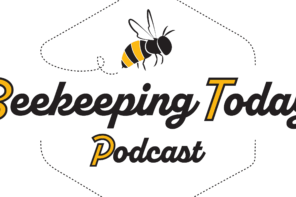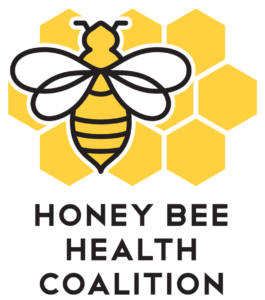For the first time in it’s 14-year history, the Heartland Apicultural Society (HAS), will meet in Michigan. The venue will be Albion College and the dates are July 9, 10 and 11. During a recent driving trip to the Indiana Beekeepers Spring Bee School, HAS president and Michigan beekeeper Rich Wieske and I had a chance to discuss some key aspects of this meeting.
LC – What should beekeepers expect when they attend the first ever HAS held in Michigan?
RW – Michigan hospitality, along with a strong feeling of welcome and friendship. Plus, the Michigan Beekeepers Association will celebrate it’s 150th year of existence during the HAS meeting with a special Saturday afternoon celebration.
LC – That makes the Michigan Beekeepers Association a very old beekeeping club in North America.
RW – It is one of the oldest continuously operating beekeeping clubs in North America, if not the oldest. It was established under the direction of Dr. A. J. Cook, a professor at Michigan Agricultural College (now Michigan State University). The MBA was formed in 1865 and had its first conference in 1869. Cook was a professor of Entomology at MAC, and wrote a series of books called the Manual of the Apiary, based on his class in Apiculture. The book went through over twenty revisions, and, at the time, was considered one of the most useful bee books available besides Langstroth’s The Hive and the Honey Bee. Cook was part of the effort to provide education for farmers, a growing concept in the 1860s, and was part of the same movement that helped establish national Agricultural Land Grant Colleges throughout the United States.1
LC – What’s Albion College all about?
Albion is a small town in south-central Michigan. Albion College is a small, liberal-arts 1350-student college in that village founded in 1835. It is located not far from the intersection of Interstates 94 and 69. Air travel is best through Detroit metro or Lansing but Amtrak does stop in Albion. Albion is certainly not a Detroit or Grand Rapids, or even a Marshall or Kalamazoo. The college faculty and staff have been extremely cooperative in providing full involvement of the community and have turned the entire campus over to HAS for the Society’s meeting and events. This is a small, very compact campus, so folks will be able to walk from the main conference venue to their dorms, meeting rooms, and cafeteria without a great deal of effort. The sports field is next to the College’s Nature Center and bee colonies will be set up so there are plenty of hives available to allow various projects and programs to be conducted. We will have bees from at least three different beekeepers, including some alternative hives, like the Kenya top-bar and Warré hives. In the past there have not always been enough hives for the queen rearing and other programs to use, so we want to be blessed with extra hives for everyone to work with.
LC—What should people expect while on campus?
Popcorn! I love popcorn and we will have two poppers located on campus for folks to enjoy. Also, the chief in the cafeteria promises to prepare a special honey dish every day, and folks can buy other food at the cafeteria or from vending machines. It will be a short walk to hear the many keynote speakers who will address the entire HAS audience. Then breakout sessions will be held in classrooms, laboratories and in the bee yard. We want people to complain that there is so much to do and not enough time in three days to do it all.
LC – Who are your featured speakers?
As you already know, we are putting emphasis on speakers from Michigan, with yourself, Roger Hoopingarner and Clarence Collison as featured speakers, along with Zach Huang in the microscope labs. We have invited Kim Flottum, Sue Cobey, Dennis van Engelsdorp, Renata Borba, Ken Schramm and Joe Traynor as well. We will have speakers discussing propolis and apitherapy as well. The queen rearing course taught by Dr. Greg Hunt, Krispn Given, Joe Kowaleski, Dwight Wells, Meghan Milbrath and Michael Risk will be limited for sign-up, so make sure you get your registration in early. Also, we expect a special program on Apitherapy.
LC – Describe a typical day at HAS?
Lots of people start out with breakfast in the cafeteria. After saying hello to some familiar faces, try to sit down with someone you do not know and share bee stories with them. For me, that is always the best part of getting to learn what people from different regions are doing. Then walk over to the presentation for the day’s first keynote speaker. Then select one of the breakout sessions and have a more intimate learning situation. During the break, visit with the vendors – many of them will bring shipments with them so you do not have to pay shipping costs. You may get into the queen rearing or apitherapy session, so your time will be more structured.
At noon, this will all repeat, with lunch at the cafeteria, another keynote speaker and breakout sessions.
On Thursday night we will have a barbeque sponsored by Arcadia brewing out of Battle Creek and Kalamazoo, and Friday night will be a banquet. We plan to have music from the Benzi Boys, a French-Cajun group from Benzonia, MI.
On Saturday HAS will end around noon but the program will continue with the 150th anniversary celebration of the Michigan Beekeepers Association—all included in the day’s registration fee. Dr. Roger Hoopingarner will discuss the history of beekeeping in Michigan and we are working to have the largest beekeeper pot-luck lunches ever. We will be inviting area beekeepers who are not part of the HAS event and expect to have a large turnout.
LC – All this sounds expensive. What will costs be?
We have set the registration for the three days at $100 per person. Meals will be reasonably priced. The big difference with this conference is the huge support we have received from Michigan beekeepers and many vendors. So far we expect to have between $25,000 and $30,000 donated to HAS to support the cost of speakers, as well as provide events from an ice cream social to a mead-tasting event. Without this generous support, this extensive program would not happen or would cost a lot more.
LC – What have we overlooked?
If all works out, there will be a Real Queen Auction, where people can bid on queens from several bee breeders. This is part of the program to grow queen rearing in the HAS area.
There will be some cool technology. We want to have a camera inside a hive that projects onto a screen in the cafeteria or some other area of the campus so people can see what is happening in the hive.
We plan to have a Droning for Drones, where groups of beekeepers will search for Drone Congregation Areas, mark the drones captured in the DCA’s and then be released so we can trace them back to their hives.
There will be a campus-side art exhibit with a bee culture emphasis. The Albion Faculty is behind this effort.
Registration information is found on the website – www.heartlandbees.org
I’ll Bee In Albion! Will You?








